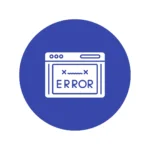Do you want to save your fund and that also without any risk involved? Or you have an idle fund where you don’t want to invest in the money market or a mutual fund, but still, you are unable to think of a better way. It is simple, you just put your fund in a fixed deposit. That way your idle fund would earn interest higher than your savings account rate and you can withdraw at any time you wish.
So, basically, what do you understand by Fixed Deposit? We will discuss it in this article including the fixed deposit rates in India.
A fixed deposit or term deposit is meant for saving funds by placing them in a specific account called a fixed deposit account. You can keep your fund for a short period of 7 days to as long as 10 years.
That means you can open it for 7 days, 30 days, 6 months, 1 year up to 10 years. And these different tenors have different rates of interest. Normally, we have seen shorter tenors have less interest provision than longer tenors. Presently banks are giving the rate of interest between 5 to 7 percent per annum.
You can give direction to your banker if you want to get your interest on monthly, quarterly, half-yearly or annually. As per your needs, you can decide. But it doesn’t make any difference as the system automatically picks up and paid to the fixed deposit account annually. Normally on 31st March or the first week of April every year.
All the nationalized banks, private banks, post offices as well as state cooperative banks in India provide the facility of fixed deposits. Banks such as the State bank of India, ICICI bank and HDFC bank Ltd are a few financial institutes where their fixed deposit schemes are quite popular among banks.
Who can open it?
Any individual can open an FD account including minors. Provision of special interest rates for senior citizens is there. You can open in your single name or you can open jointly with your spouse, parents, or children. The mode of operation is the same as you put in your savings accounts.
Non-personal accounts such as firms, societies, etc, are also eligible to open fixed deposit accounts.
Where can you open a fixed deposit account?
You can get the facility in all the nationalized banks such as SBI, Punjab and Sind Bank, Oriental Bank and private banks such as ICICI Bank, and HDFC bank ltd. Post offices and State cooperative banks also provide the facility. So, it’s very easy for you to get open this account and start saving your funds.
Required documents?
If you already have savings or current accounts, there is no need for fresh KYC documents. But, if don’t have an account then you will have to produce your valid KYC documents to open a fixed deposit account.
You can verify the required KYC documents from the RBI website.
What’s the rate of interest?
The rate of interest is slightly different among the banks. As its interest is solely decided by the bank’s own board members. From time to time it keeps on changing. But overall it is more or less the same. Please click on the bank if you want to know the current rate of interest of the respective bank. State Bank of India, ICICI Bank and HDFC Bank Ltd.
Tenors of fixed deposit account?
You can keep your fund as short as 7 days. There is a longer period but it can not go beyond 10 years. It means the minimum tenor is 7 days and the maximum tenor is 10 years.
Also, read Fixed Deposits Rates.
There is a rollover facility given, which means your fixed deposit got matured and if you don’t withdraw it will extend to another term. It keeps on rolling over until you give directions to close it.
Liquidity
The liquidity of fixed deposits is quite good as it is not directly invested by the bank in other portfolios. You can withdraw your fund anytime any day you want. So, in terms of liquidity fixed deposits is one of the favoured product in the banking system. The catch is, earlier some banks may impose a penal charge on the interest you have earned on your capital if you withdraw before maturity. But as of now, it seems the bank doesn’t impose any penal charge on your interest portion.
Balance in fixed deposit is taxable under IT Act.
Yes, it is taxable under Income Tax Act. But not all of it, only the interest portion it is taxable and that too, if your interest earned is more than Rs 10000/-. The deduction rate is 10 percent of the interest earned if the PAN number is provided in your account otherwise it’s 20%. If your fund is not taxable then you can declare it to your banker through Form-G and Form-H. Form-G has to use by a person who is below 60 years of age and Form-H is for senior citizens. With this declaration, only your fixed deposits will be exempted from tax.
So, as we have mentioned before if you have an idle fund lying in your savings account and you don’t want to invest in a money market or mutual fund. Then, your choice of fixed deposit is perfect. Risk-free yet very liquid. Moreover, you can get a loan against your FD balance. Most banks normally give 90 to 95 percent of the balance as a loan.
Guys, let your money earn money without any effort from your end. Stay safe and safe banking!!








